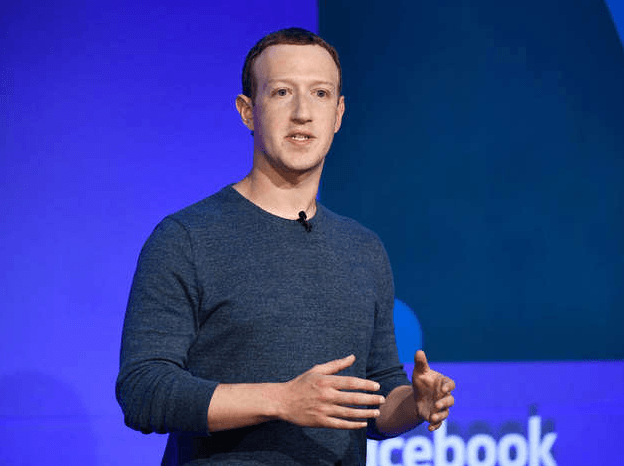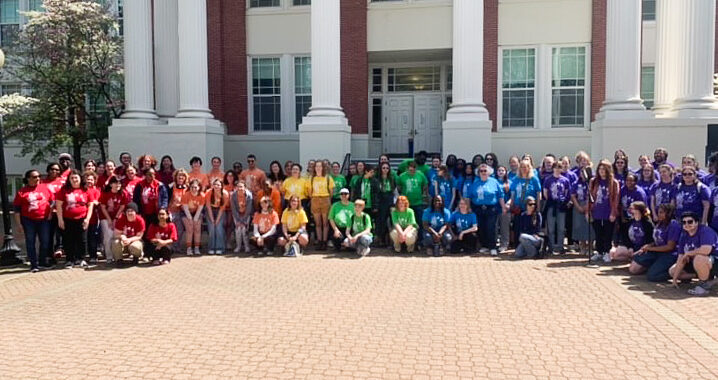Students discuss generational gap of understanding in Facebook misinformation
3 min read
Mark Zuckerberg remains unclear on Facebook's expectations for political ads. (Economic Times)
By EMILY MALONE
Staff Writer
Some UMW students and faculty are concerned about Facebook’s spread of misinformation after presidential candidate Elizabeth Warren’s recent ad highlighting this issue.
The ad began with the line “Breaking news: Mark Zuckerberg and Facebook just endorsed Donald Trump for re-election.” That statement is false, and was used to demonstrate how Facebook allows false information to be shared so easily. Warren pointed out that the social media site is allowing the public’s ideas of the political world to be skewed because it doesn’t take down ads or posts including misinformation.
Zach Whalen, a professor and director of the digital studies minor, explained that sharing information is not the priority of Facebook.
“Facebook is not designed to give people the best information. It’s designed to get people emotionally charged and engaged,” he said. “Facebook doesn’t want you to click an article and then go read something and learn something new, they want you to keep scrolling. They want you to keep refreshing, so that you stay inside of Facebook.”
As of now, Zuckerberg isn’t focused on solving this problem. During a hearing on Oct. 3, Zuckerberg was questioned on whether he believed Facebook was responsible for taking down ads that included misinformation. He stated that Facebook will take down ads that include depictions of violence but didn’t say whether they would remove political ads containing false information.
“Facebook so far has been like ‘that’s not our problem’ but I think increasingly they have more of a responsibility just ethically to be more careful about that,” Whalen said.
For many students, this misinformation sharing on Facebook is not a new problem, and has become part of the culture.
“The articles that you find on there were always sort of the subject of jokes, and people at my old school would say that if you got an article from your parents from either WhatsApp or Facebook you know it’s one hundred percent a scam,” said freshman Sarah Eltayeb.
Many students that grew up with Facebook recognize that some articles are false, and take the headlines with a grain of salt. Some students stay away from Facebook completely because of these articles, and some caution their consumption of news from the social media site. For parents and other older adults, this sense of caution isn’t always on their minds.
“I was always sort of amazed by the fact that these people are educated, but they would still read something like ‘stop eating sugar and you’ll lose 30 pounds and grow an extra tooth’ and they would take it at face value and they would just believe it. On the one hand my mom would say ‘don’t always believe what you read online’ and then she would send us articles like that,” Eltayeb said.
Freshman Ash Thurst said although he doesn’t use Facebook, his parents come across misinformation a lot.
“My parents use Facebook religiously. Whenever my dad comes across misinformation or something that somebody has signal boosted he will rant about it to other people or he will comment on it and be like ‘this is false’ and he will fact check it, but he won’t do anything to get rid of it because he likes conflict I guess. But my mom purposely just will block it,” Thurst said.
For some, the articles with misinformation are a funny joke because they are so obviously fake, but others believe this to be a problem, especially when it comes to politics.
“I think that is a really dangerous way of reporting the news, and especially in this day and age where communication is so important in our society, it hurts our overall political system when there is misinformation spread from an important news source,” said Jennifer Snyder, a sophomore and sociology major.
With the spread of false information becoming more common, students have found they have to look beyond Facebook to find the truth.
“I personally don’t believe there is a way to avoid looking at false news other than looking up the news yourself to fact check their argument or data. While time consuming, it makes you a better researcher in that sense, and that way you know you for sure. It does frustrate me that our journalism system is known for spreading false news,” Snyder said.











